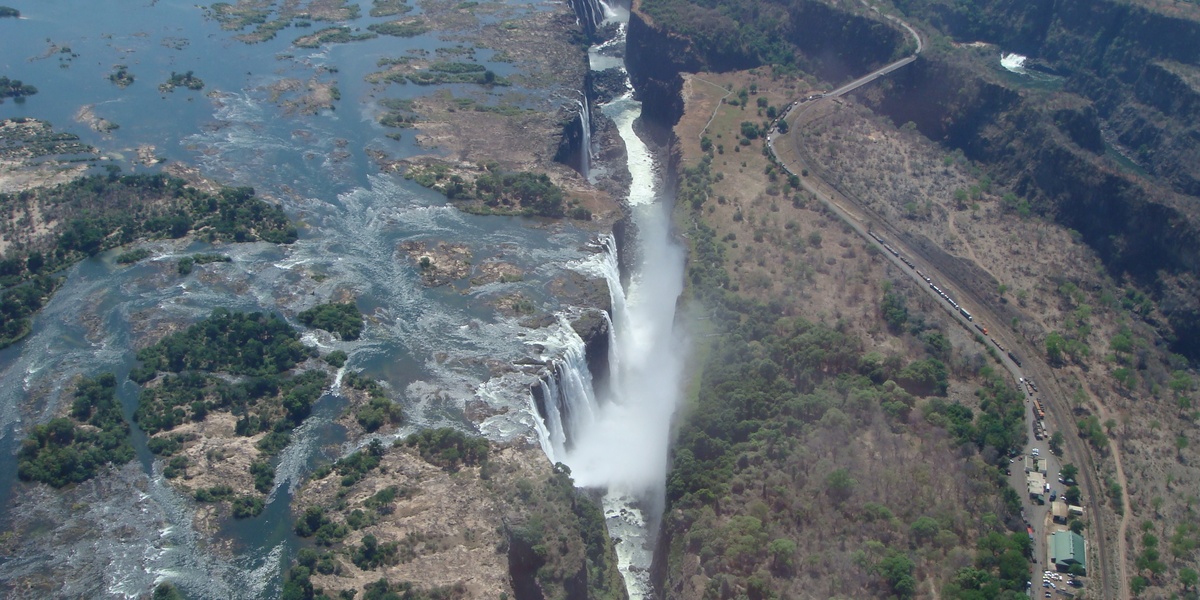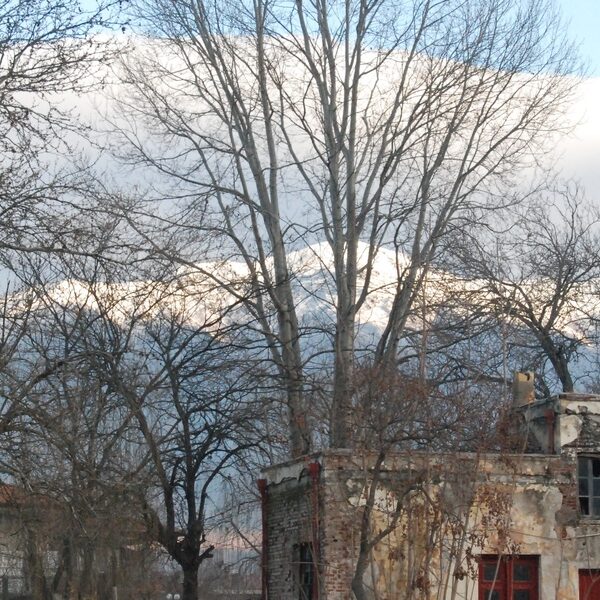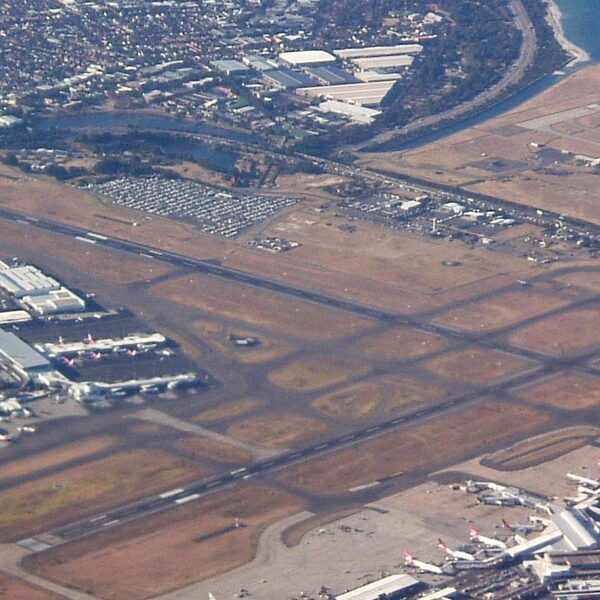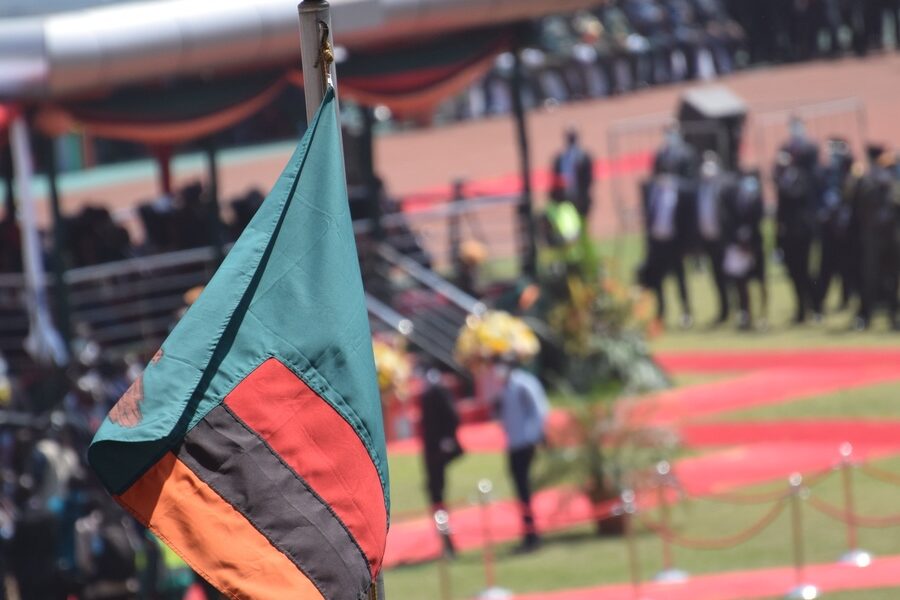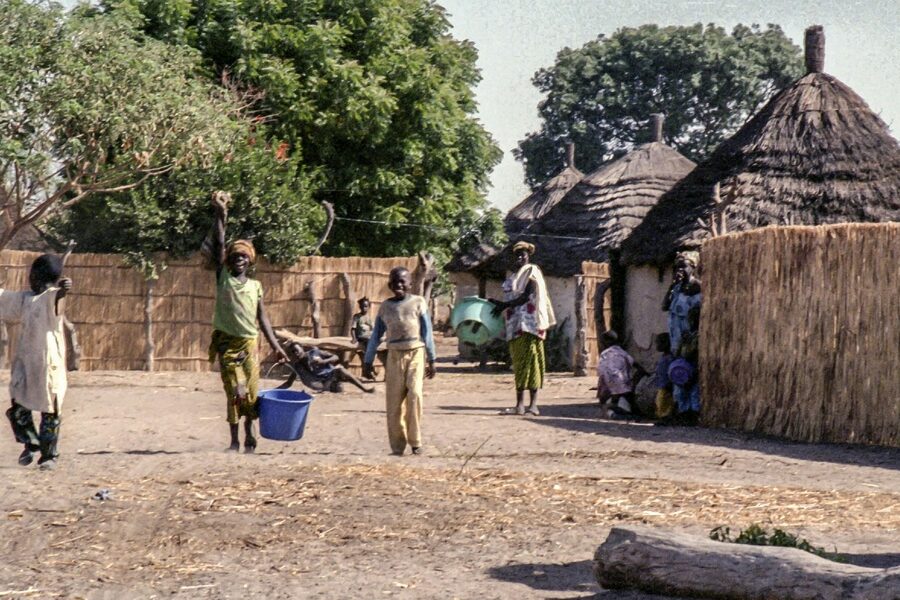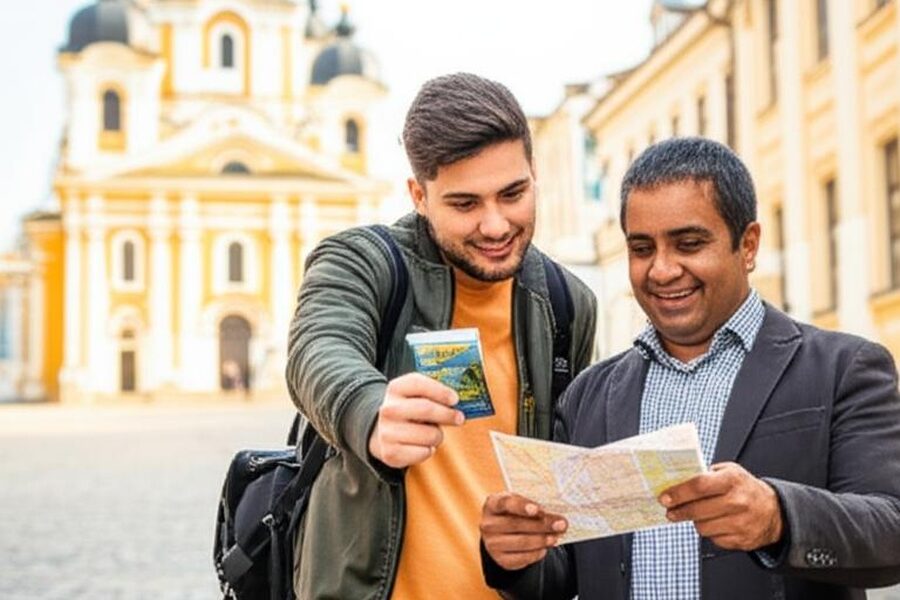Zambia is a country of warm people, busy markets and wildlife-filled parks where a few local phrases can make travel smoother and friendlier. Whether you’re buying nshima at a roadside stall or asking directions in Lusaka, knowing some basics helps you connect and shows respect for local languages.
There are 68 Useful Phrases for Tourists in Zambia, ranging from Bad,You (from “Bad” to “You”) to cover common needs and situations. Each entry is organized for quick use: Translation (Bemba/Nyanja/Tonga/Lozi),Phonetic,Usage note — you’ll find below.
Which phrases are most helpful to learn first when visiting Zambia?
Start with greetings, thank you, please, excuse me, and simple questions like “Where is…?” and “How much?” These let you navigate markets, taxis and basic interactions. Focus on phrases marked for pronunciation in the Phonetic column and those common across Bemba and Nyanja for the widest use.
Do Zambians expect perfect pronunciation?
No — effort and politeness matter more than perfection. Use the Phonetic guidance, speak slowly, and smile; locals appreciate attempts at their languages and many will help or reply in English if needed.
Useful Phrases for Tourists in Zambia
| Phrase | Translation (Bemba/Nyanja/Tonga/Lozi) | Phonetic | Usage note |
|---|---|---|---|
| Hello / How are you? | Muli shani?; Muli bwanji?; Muli buti? | Moo-lee shah-nee?; Moo-lee bwan-jee?; Moo-lee boo-tee? | A universal greeting anytime, day or night. |
| I am fine | Ndifye bwino; Nili bwino; Ndi kabotu | Ndee-fyeh bwee-noh; Nee-lee bwee-noh; Ndee kah-boh-too | The standard reply to “How are you?”. |
| Thank you | Natotela; Zikomo; Twalumba; Ni itumezi | Nah-toh-teh-lah; Zee-koh-moh; Twah-loom-bah; Nee ee-too-meh-zee | Use generously for any act of kindness. |
| Thank you very much | Zikomo kwambiri; Natotela sana | Zee-koh-moh kwam-bee-ree; Nah-toh-teh-lah sah-nah | For showing extra gratitude. |
| Yes | Ee; Inde; Ee | Eh; Een-deh; Eh | A simple affirmative response. |
| No | Awe; Iyayi; Peepe; Batili | Ah-weh; Ee-yah-yee; Peh-peh; Bah-tee-lee | A simple negative response. |
| Please | Chonde | Chon-deh | Use when making a request. |
| Excuse me / Sorry | Pepani | Peh-pah-nee | To get attention or apologize. |
| Good morning | Mwashibukeni; Mwadzuka bwanji? | Mwah-she-boo-keh-nee; Mwah-dzoo-kah bwan-jee? | A polite greeting used only in the morning. |
| Goodbye | Shalapo bwino; Pitani bwino; Muyende hande | Shah-lah-poh bwee-noh; Pee-tah-nee bwee-noh; Moo-yen-deh hahn-deh | Said when you are leaving. |
| What is your name? | Niwe nani ishina?; Dzina lanu ndani?; Ndiwe niwe ni? | Nee-weh nah-nee ee-shee-nah?; Dzee-nah lah-noo n-dah-nee? | To ask someone their name. |
| My name is… | Nine…; Dzina langa ndi… | Nee-neh…; Dzee-nah lah-nga n-dee… | To introduce yourself. |
| I don’t understand | Nshumfwile; Sindimvetsa; Handimvwi | N-shoom-fwee-leh; Seen-dee-m-vet-sah; Hahn-deem-vwee | When you can’t comprehend what was said. |
| Do you speak English? | Walishiba icisungu?; Mumalankhula chizungu? | Wah-lee-she-bah ee-chee-soon-goo?; Moo-mah-lan-koo-lah chee-zoon-goo? | To find an English speaker. |
| Where is the toilet? | Chimbuzi chili kuti?; Chimbudzi chili kuti? | Cheem-boo-zee chee-lee koo-tee? | An essential question for any traveler. |
| How much is this? | Ni shinga?; Ndi zingati?; Ndi mali nzi?; Ki bukai? | Nee sheen-gah?; N-dee zeen-gah-tee?; N-dee mah-lee n-zee?; Kee boo-kai? | The most important phrase for shopping. |
| It’s too expensive | Nadula; Ndi okwera mtengo kwambiri | Nah-doo-lah; N-dee oh-kweh-rah m-ten-go kwam-bee-ree | Use when bargaining in markets. |
| The bill, please | Ndeteleni bill; Ndipatseni bill | N-deh-teh-leh-nee bill; N-dee-pah-tseh-nee bill | To ask for the check at a restaurant. |
| Water | Amenso; Madzi; Meenda; Mezi | Ah-men-soh; Mah-dzee; Meh-en-dah; Meh-zee | To ask for water. |
| Food | Ifyakulya; Chakudya; Zyakulya; Lico | Ee-fya-koo-lyah; Cha-koo-dyah; Zyah-koo-lyah; Lee-cho | The general term for food. |
| I am hungry | Njala; Ndili ndi njala | N-jah-lah; N-dee-lee n-dee n-jah-lah | To express that you need to eat. |
| I am thirsty | Chilaka; Ndili ndi ludzu | Chee-lah-kah; N-dee-lee n-dee loo-dzoo | To express that you need a drink. |
| Delicious! | Chawama; Chokoma | Cha-wah-mah; Cho-koh-mah | To compliment the food. |
| Nshima | Nshima; Nsima | N-shee-mah; N-see-mah | Zambia’s staple food. |
| Chicken | Inkoko; Nkhuku; Inkuku | Een-koh-koh; N-koo-koo; Een-koo-koo | A common dish on any menu. |
| Help! | Ngafweni!; Thandizeni! | N-gah-fweh-nee!; Tahn-dee-zeh-nee! | For use in an emergency. |
| Doctor | Dokotala; Sing’anga | Doh-koh-tah-lah; Seen-gah-n-gah | To ask for a medical professional. |
| I am sick | Nindwala; Ndikudwala | Neen-dwah-lah; N-dee-koo-dwah-lah | To communicate that you are not feeling well. |
| Money | Indalama; Ndalama; Mali | Een-dah-lah-mah; N-dah-lah-mah; Mah-lee | The general word for money. |
| One | Chimo; Chimodzi; Komwe | Chee-moh; Chee-moh-dzee; Koh-mweh | The number 1. |
| Two | Fibili; Fiwiri; Bobilo | Fee-bee-lee; Fee-wee-ree; Boh-bee-loh | The number 2. |
| Three | Fitatu; Zitatu; Botatwe | Fee-tah-too; Zee-tah-too; Boh-tah-tweh | The number 3. |
| Four | Fine; Zinayi; Bone | Fee-neh; Zee-nah-yee; Boh-neh | The number 4. |
| Five | Fisano; Zisanu; Bosanu | Fee-sah-noh; Zee-sah-noo; Boh-sah-noo | The number 5. |
| Ten | Ikumi; Khumi; Ikumi | Ee-koo-mee; Koo-mee; Ee-koo-mee | The number 10. |
| One Hundred | Umwanda; Zana | Oo-mwan-dah; Zah-nah | The number 100. |
| One Thousand | Ikana; Chikwi | Ee-kah-nah; Chee-kwee | The number 1,000. |
| Today | Lelo | Leh-loh | Refers to the current day. |
| Tomorrow | Mailo | My-loh | Refers to the next day. |
| Yesterday | Mailo (past); Jilo | My-loh; Jee-loh | Refers to the previous day. |
| Now | Nomba; Panopa | Nom-bah; Pah-noh-pah | Refers to the present moment. |
| Go / Let’s go | Tiyeni; Tuya; Atu ye | Tee-yeh-nee; Too-yah; Ah-too-yeh | To indicate movement or departure. |
| Stop | Ima; Imani | Ee-mah; Ee-mah-nee | To command something to cease movement. |
| Friend | Munandi; Bwenzi | Moo-nahn-dee; Bwen-zee | A term for a friend. |
| White person / Foreigner | Muzungu; Mzungu | Moo-zoon-goo | A term for a non-Zambian, usually of European descent. |
| Me / I | Ine | Ee-neh | The first-person pronoun. |
| You | Iwe | Ee-weh | The second-person pronoun. |
| Market | Musika; Msika | Moo-see-kah; M-see-kah | The place for buying fresh goods. |
| Bus / Bus station | Basi; Malo ya mabasi | Bah-see; Mah-loh yah mah-bah-see | For public transportation. |
| Taxi | Taxi | Tak-see | For private transportation. |
| Shop | Sitolo | See-toh-loh | A small store for provisions. |
| Home / Village | Mushi; Mudzi; Munzi | Moo-shee; Moo-dzee; Moon-zee | Refers to a person’s home or home village. |
| Man / Men | Umwaume / Abaume; Mwamuna / Amuna | Oo-mwa-oo-meh / Ah-ba-oo-meh; Mwa-moo-nah / Ah-moo-nah | The word for a man or men. |
| Woman / Women | Umwanakashi / Abanakashi; Mkazi / Akazi | Oo-mwa-nah-kah-shee / Ah-ba-nah-kah-shee; M-kah-zee / Ah-kah-zee | The word for a woman or women. |
| Child / Children | Umwana / Abaana; Mwana / Ana | Oo-mwah-nah / Ah-bah-nah; Mwah-nah / Ah-nah | The word for a child or children. |
| Look! | Ona!; Onani!; Talifa! | Oh-nah!; Oh-nah-nee!; Tah-lee-fah! | To draw attention to something. |
| Lion | Inkalamo; Mkango | Een-kah-lah-moh; M-kahn-go | The king of the savanna. |
| Elephant | Insofu; Njobvu | Een-soh-foo; N-joh-bvoo | The largest land animal. |
| Leopard | Ingo; Nyalugwe | Een-goh; Nya-loo-gweh | The elusive spotted cat. |
| Buffalo | Imboo; Njati | Eem-boh; N-jah-tee | A powerful member of the “Big Five”. |
| River | Umulonga; Mtsinje; Lwizi | Oo-moo-long-ah; M-tseen-jeh; Lwee-zee | A key feature of Zambia’s landscape. |
| Big / Large | Ukulu; -kulu | Oo-koo-loo; -koo-loo | An adjective for size. |
| Small | Unono; -nono; -chepa | Oo-noh-noh; -noh-noh; -cheh-pah | An adjective for size. |
| Good | Bwino; -wama; -bote | Bwee-noh; -wah-mah; -boh-teh | A general term of approval. |
| Bad | Bibi; -ipa | Bee-bee; -ee-pah | A general term of disapproval. |
| Slowly | Panono panono; Pang’ono pang’ono | Pah-noh-noh pah-noh-noh; Pahn-goh-noh pahn-goh-noh | To ask someone to slow down. |
| Problem | Vuto | Voo-toh | To indicate something is wrong. |
| No problem | Palibe vuto | Pah-lee-beh voo-toh | A very common, reassuring phrase. |
Descriptions
Hello / How are you?
This is the standard greeting, literally “how are you?”. It’s used like “hello” everywhere, from markets to hotels. It’s polite to ask it back. The expected response is “Bwino” or “Ndifye bwino”.
I am fine
When someone greets you with “Muli bwanji?”, this is your go-to response. It means “I am fine” and is a polite and expected part of the greeting exchange in Zambia.
Thank you
A simple “thank you” is deeply appreciated. “Zikomo” (Nyanja) is particularly widespread in Lusaka and the east, but using any local term for gratitude will earn you a warm smile.
Thank you very much
When someone has gone out of their way to help you, adding “kwambiri” (a lot) shows deeper appreciation. It’s a small gesture that goes a long way in showing respect.
Yes
Used to agree or confirm something. “Inde” is very common in Nyanja-speaking areas, while “Ee” (a short ‘eh’ sound) is understood almost everywhere. It’s an essential word for basic communication.
No
Use this to politely decline or disagree. “Awe” is a common and versatile “no” in many parts of the country. Being able to say no clearly is useful, especially in markets.
Please
This is the most common word for “please” and can be added to requests to make them more polite, for example, “Madzi, chonde” for “Water, please.” It’s a simple way to show courtesy.
Excuse me / Sorry
Pepani is a versatile word used to say “excuse me” to pass someone, to get a waiter’s attention, or to say “I’m sorry” if you bump into them. It’s an essential polite expression.
Good morning
This greeting is a respectful way to start the day. The response is often the same, or a simple “Bwino” (Fine). Using it shows you are making an effort with local customs.
Goodbye
The phrase literally means “go well” or “stay well”. You say “Pitani bwino” if you are staying and the other person is leaving, and “Shalapo bwino” if you are leaving.
What is your name?
A friendly way to start a conversation. Zambians are generally very open and friendly, and asking someone’s name is a great way to connect on a more personal level.
My name is…
Follow this phrase with your name. For example, “Nine John” means “I am John.” It’s the perfect, simple response when someone asks for your name, helping to break the ice.
I don’t understand
Don’t be shy to use this phrase. It’s a polite way to signal a language barrier, and most people will respond by speaking slower, using gestures, or finding someone who speaks English.
Do you speak English?
English is an official language, so many people in urban areas and tourist spots speak it. However, asking politely in a local language first is always a respectful gesture.
Where is the toilet?
Chimbuzi means toilet. This is a crucial phrase for navigating restaurants, bus stations, and public spaces. People will understand and point you in the right direction.
How much is this?
Use this in markets (“mishanga”) and when buying from street vendors. It opens the negotiation. Always ask the price before agreeing to buy any service or product.
It’s too expensive
A key phrase for haggling. Saying this with a respectful smile can often lead to a lower price. Bargaining is common and expected in informal markets, but not in supermarkets.
The bill, please
While “bill” is an English word, it’s universally understood in this context. Using the local prefix makes the request polite and clear to your server when you are ready to pay.
Water
A vital word, especially in the heat. Specify “madzi a m’botolo” for bottled water if you want to be sure it’s safe to drink. Essential for staying hydrated during your travels.
Food
Useful when asking if a place serves food or when talking about meals. It’s a broad term that covers any kind of edible item, from snacks to a full dinner.
I am hungry
Simply saying “Njala” (hunger) is a very common and quick way to communicate that you’re hungry. It’s a direct and easily understood way to find the nearest place to eat.
I am thirsty
Similar to “njala” for hunger, “chilaka” (thirst) is a direct way to say you’re thirsty. People will quickly point you towards a place selling drinks or offer you some water.
Delicious!
Zambians take pride in their hospitality and cooking. Telling your host or the chef that the food is delicious is a wonderful compliment that will be met with a happy smile.
Nshima
This is the thick porridge made from maize (corn) meal that forms the basis of most Zambian meals. You’ll eat it with various relishes (“ndiwo”). Trying nshima is a must-do cultural experience.
Chicken
Chicken is one of the most popular protein sources in Zambia. You’ll find it grilled, fried, or in a stew, almost always served with a side of nshima and vegetables.
Help!
This is the word to shout if you are in trouble and need immediate assistance. Use it only in serious situations to attract attention and get help from those nearby.
Doctor
Dokotala is derived from English and is universally understood. “Sing’anga” can also refer to a traditional healer, so “dokotala” is clearer for a medical doctor.
I am sick
This is a simple way to express that you are feeling ill and may need medical attention or just some rest. It’s important for communicating your health status clearly.
Money
Useful when asking about prices, payment, or finding a bank. The local currency is the Zambian Kwacha (ZMW), but “ndalama” is the general term for money itself.
One
Knowing basic numbers is very helpful for shopping and transport. It can help clarify prices and quantities when there’s a language barrier. For example, “one Fanta”.
Two
Handy for buying multiple items or communicating with a taxi driver. You can also use your fingers, but knowing the word is a great way to connect with local vendors.
Three
Continue your counting skills. Using local numbers for small quantities is an easy way to practice the language and is always appreciated by locals in the market.
Four
Useful when buying produce at a market or ordering for a small group. Combining the word with hand gestures will ensure you are clearly understood.
Five
A common quantity for buying things like bananas or tomatoes. Knowing up to five will cover many of your daily market transactions and simple communications.
Ten
A useful number for understanding prices and quantities. Prices are often quoted in tens or hundreds of Kwacha, so recognizing this word can be very helpful.
One Hundred
Helpful for larger purchases or when handling money. Bills like the 100 Kwacha note are common, so knowing the term is practical for financial transactions.
One Thousand
While less common in daily conversation, it’s useful for understanding costs for bigger items, accommodation, or tours. The term “chikwi” is widely understood.
Today
A simple but useful word for making plans, asking about opening times, or confirming appointments. For example, “Is the market open lelo?”.
Tomorrow
Essential for planning ahead, whether you’re booking a safari, arranging a taxi for the next morning, or confirming your hotel checkout time.
Yesterday
Context is key here as “mailo” can mean tomorrow or yesterday depending on the sentence. However, it’s a good word to know for recounting events or clarifying timelines.
Now
A useful word to express urgency or immediacy. For example, when telling a taxi driver you want to leave now or asking if a shop is open right now.
Go / Let’s go
Tiyeni! is a very common and energetic phrase used to mean “Let’s go!”. You’ll hear it used to gather a group or to start a journey. It’s a great, positive word to use.
Stop
Imani! is what you would say to a bus or taxi driver to indicate that you want them to stop right here. It’s a clear and direct command that is universally understood.
Friend
Zambians are incredibly friendly, and you may find yourself making friends quickly. Using this term is a warm and affectionate way to refer to someone you’ve connected with.
White person / Foreigner
You will hear this word, often from children, shouted in a friendly and curious way. It’s not typically meant to be offensive but is simply a descriptor. Responding with a wave and a smile is best.
Me / I
A fundamental building block for forming simple sentences. For example, “Ine John” for “I am John” or pointing to yourself and saying “Ine” to indicate yourself.
You
Another essential word for basic communication. It allows you to ask simple questions like “Iwe?” (And you?) after you’ve answered a question yourself, making conversations more interactive.
Market
Zambian markets are vibrant, bustling centers of community life. Knowing this word will help you ask for directions to the nearest one to buy anything from fruits to local crafts.
Bus / Bus station
Basi is understood everywhere. The main bus station is often called the “intercity”. This is your word for finding long-distance or local minibus transport.
Taxi
The word “taxi” is used and understood everywhere in Zambia. Use it to find a ride, but always remember to agree on the fare (“Ni shinga?”) before you get in.
Shop
Derived from “store,” this word is used for a small, local shop where you can buy essentials like drinks, snacks, and basic groceries. It’s different from a large supermarket.
Home / Village
This word carries a deep cultural meaning, referring not just to a house but to one’s roots and community. It’s a term you’ll hear often as people talk about their origins.
Man / Men
Useful for basic descriptions or when asking for directions, for example, “Where is that man?”. Gendered language can be helpful for pointing people out in a crowd.
Woman / Women
Similar to the word for man, this is useful for basic descriptions and communication. It’s a fundamental vocabulary word for everyday interactions.
Child / Children
You will see many children who are often very curious and friendly. Knowing this word can be helpful in daily interactions. Zambian culture places a high value on children.
Look!
An excellent word for a safari! Use it to quickly point out an animal or an interesting sight to your guide or travel companions. It’s a short, sharp, and effective way to say “Look there!”.
Lion
One of the “Big Five” animals everyone hopes to see on safari. Asking your guide “Mkango?” is a simple way to inquire if any lions have been spotted recently.
Elephant
South Luangwa and the Lower Zambezi are famous for their large elephant populations. Knowing the local name adds a special touch to your wildlife viewing experience.
Leopard
Zambia, particularly South Luangwa, is renowned as one of the best places in Africa to spot a leopard. Impress your guide by using the local term for this beautiful predator.
Buffalo
These formidable herbivores are a common sight in Zambia’s national parks. They are respected for their strength, and seeing a large herd is an unforgettable experience.
River
From the mighty Zambezi to the Luangwa, rivers are the lifeblood of the country and its wildlife. This word is useful when asking for directions or discussing geography.
Big / Large
A useful descriptor for everything from portion sizes (“nshima -kulu”) to animals (“njobvu -kulu”). It helps you communicate more specific details.
Small
The opposite of “ukulu”. Useful for asking for a smaller portion, clarifying sizes in a market, or describing something you’ve seen. A very practical word to know.
Good
Bwino is an incredibly versatile word. It can mean “good,” “fine,” “well,” or “okay.” You’ll hear and use it constantly in greetings, to describe food, and to express satisfaction.
Bad
While you hopefully won’t need it often, it’s useful to know how to express that something is not good, whether it’s food that has gone off or a service that was poor.
Slowly
A very useful phrase when someone is speaking too quickly in a local language or even in English. It can also mean “a little bit at a time,” as in to proceed carefully.
Problem
Palibe vuto means “no problem,” a phrase you will hear very often. If there is an issue, you can simply say “Vuto” to indicate that something is wrong.
No problem
This is the Zambian “hakuna matata.” It means “no worries” or “it’s okay.” You’ll hear it constantly as a response to apologies or thanks. It reflects the easygoing nature of the people.

